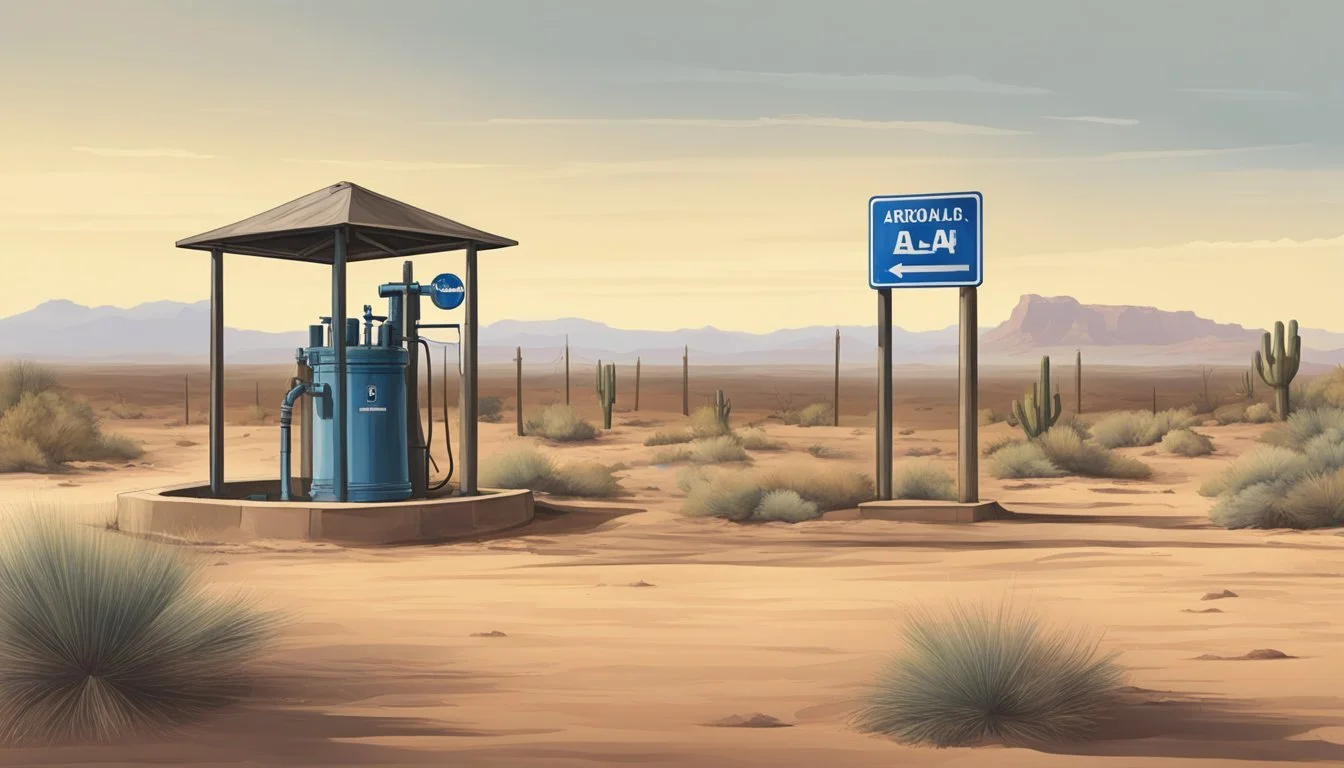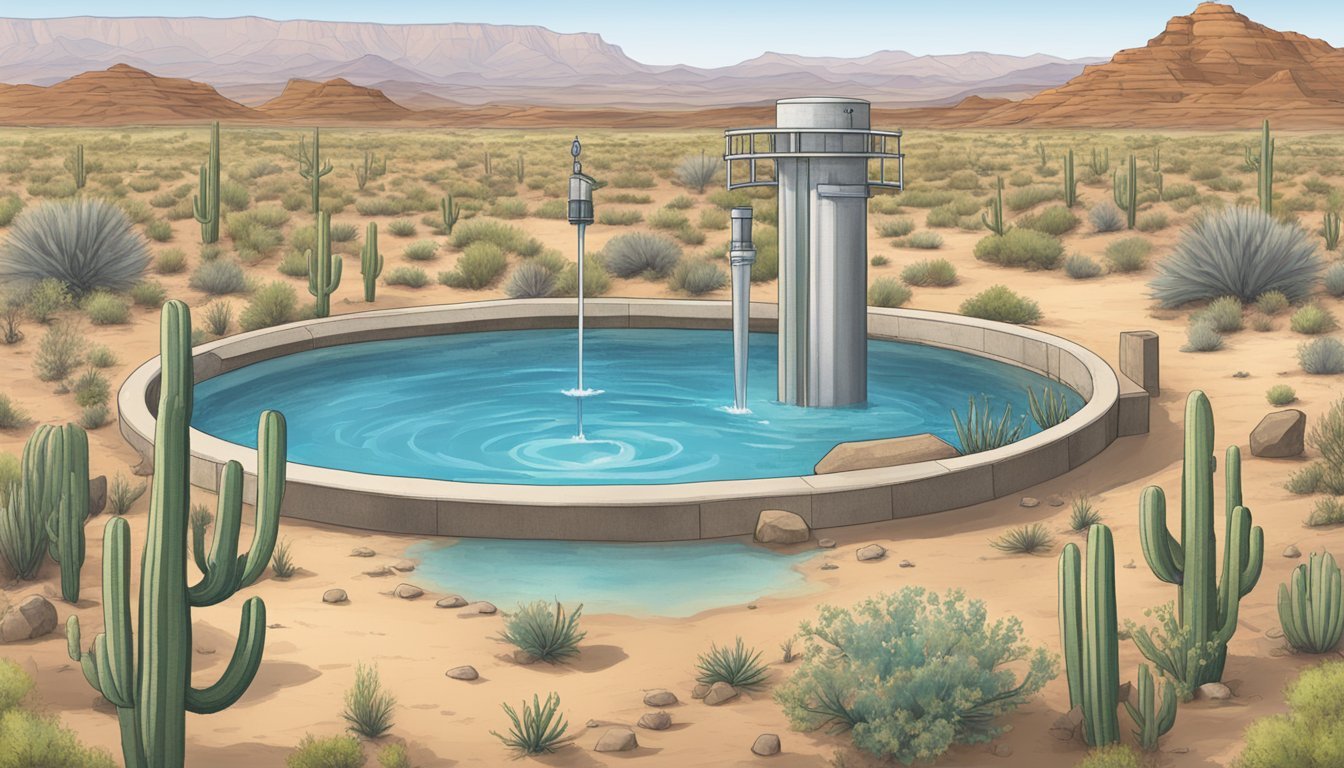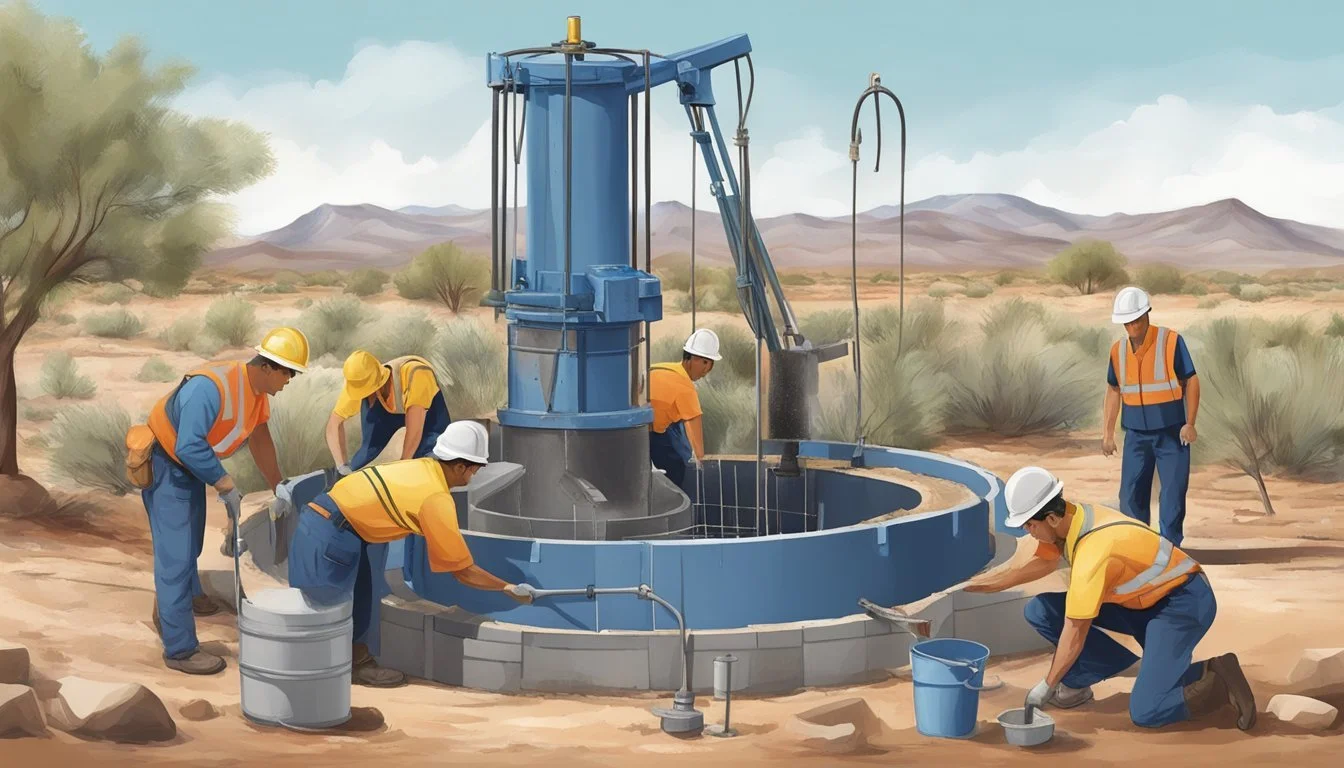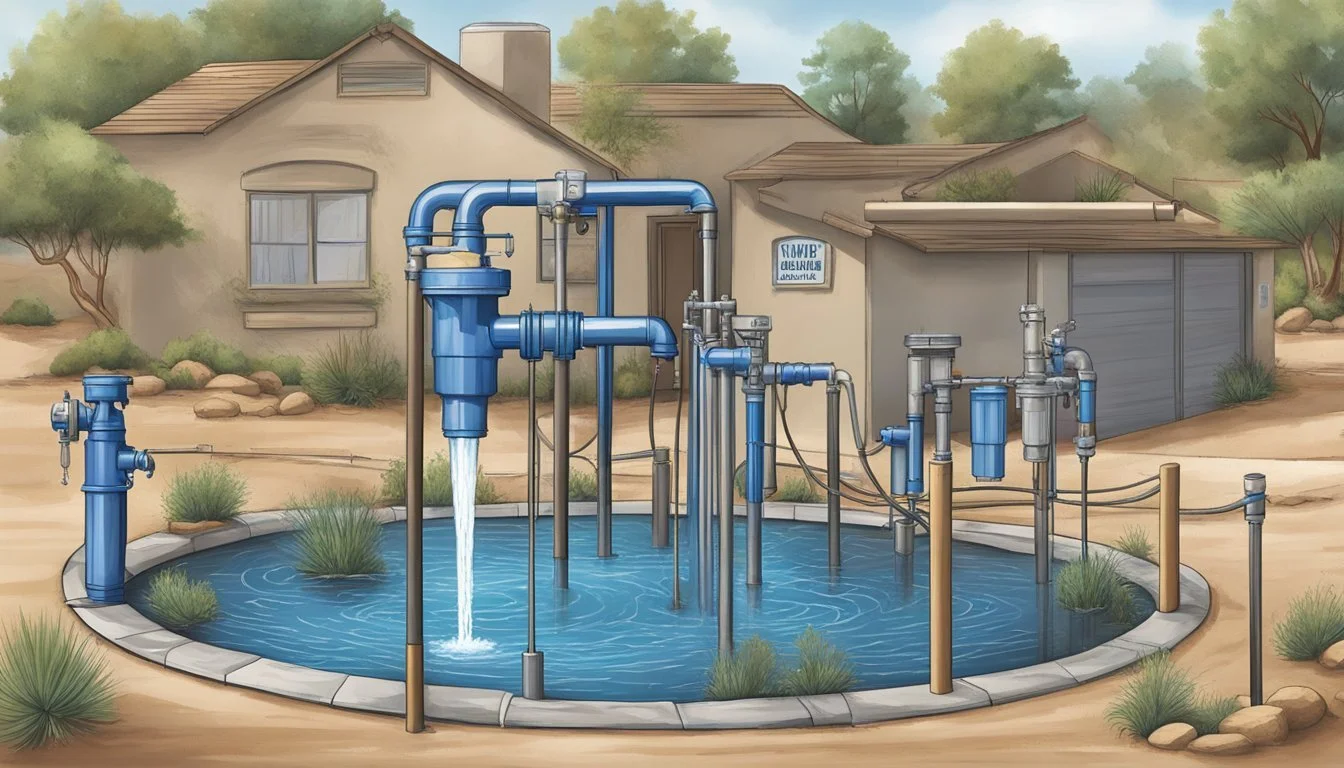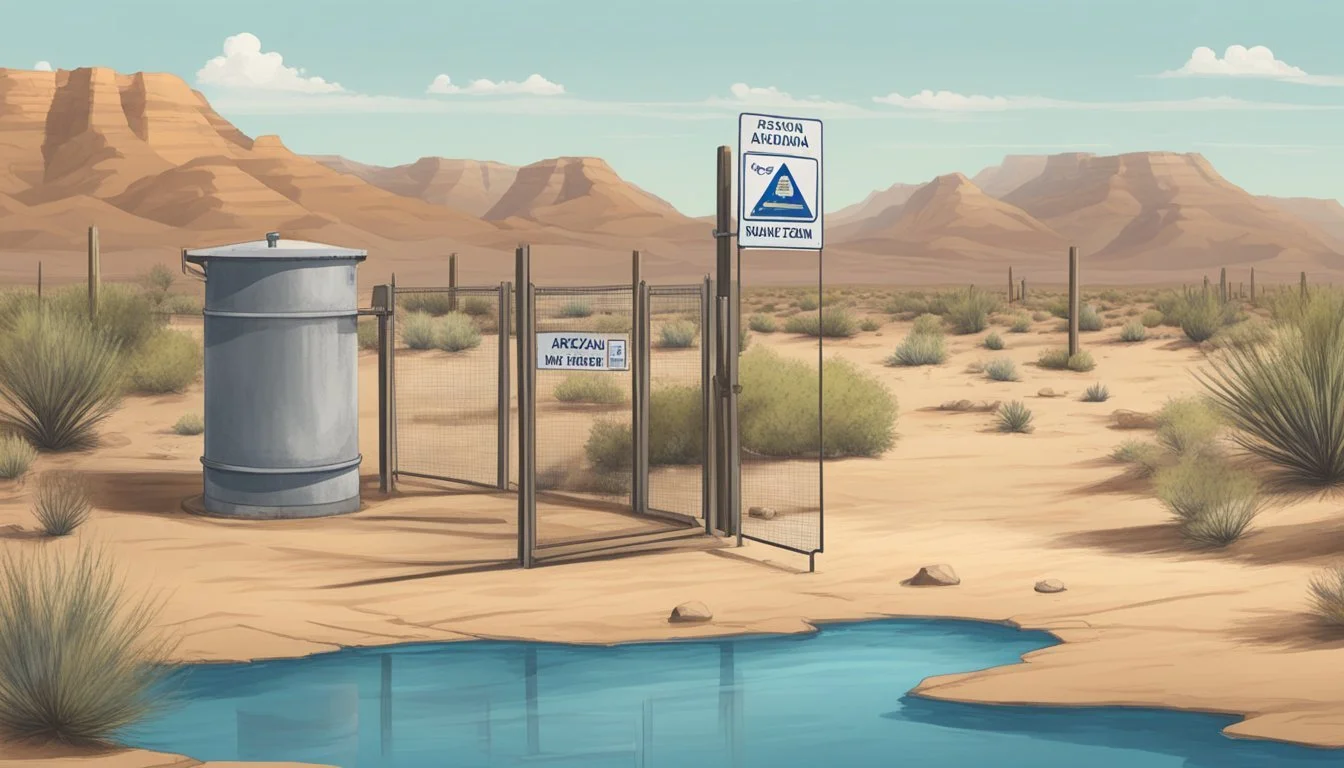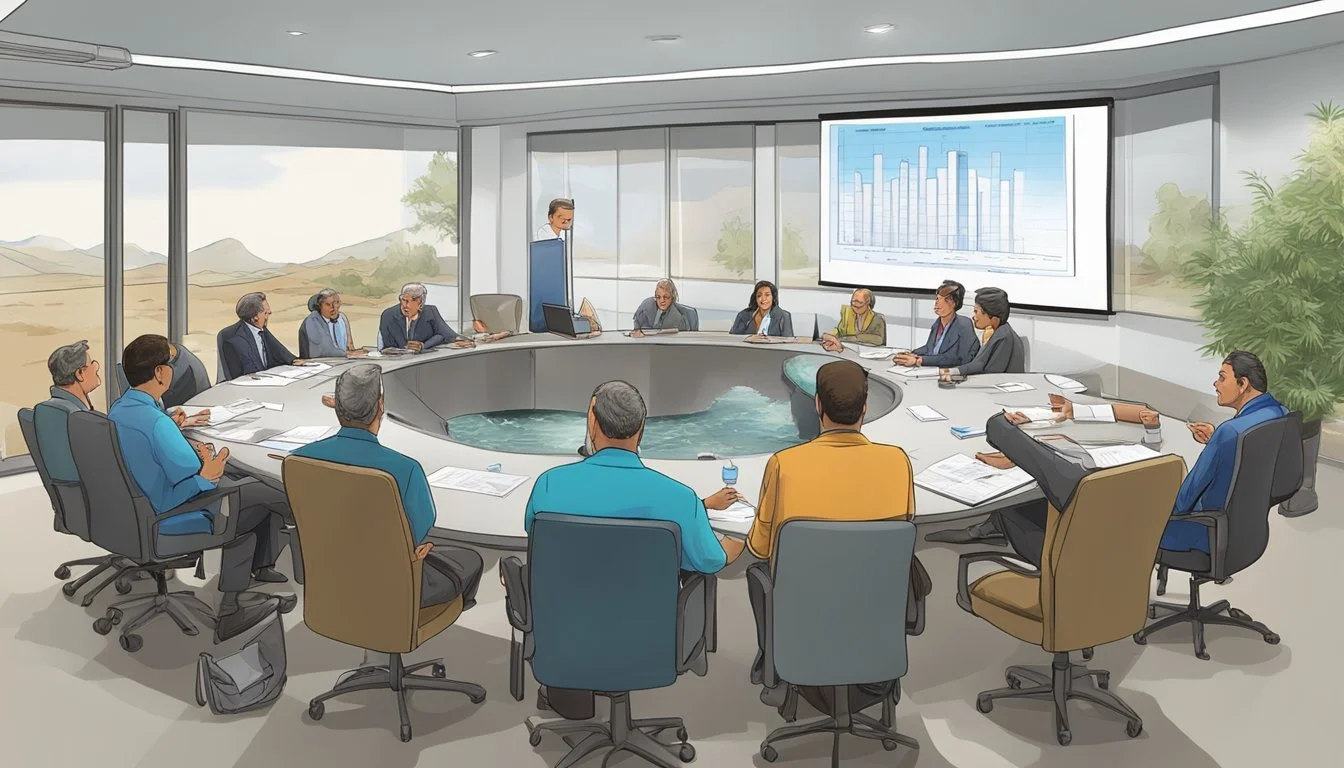Arizona Water Well Regulations
Understanding the Legal Framework
Regulating groundwater wells is a crucial aspect of water resource management in Arizona. The Arizona Department of Water Resources (ADWR) oversees the implementation of these regulations to ensure the longevity and purity of the state's groundwater supplies. Well construction standards set forth by ADWR are designed to mitigate contamination risks, protecting not just the water supply for current users but also preserving it for future generations. Understanding these regulations is essential for anyone involved in groundwater extraction or well construction in Arizona.
Arizona's well regulations address a variety of areas, including the permitting process for new wells, the rights and responsibilities of well owners, and the stipulated construction requirements. These rules serve as a balance between facilitating access to water resources and safeguarding them against overuse and pollution. For instance, certain wells, classified officially as "Exempt" under the Arizona Groundwater Management Act, are limited in their output to prevent undue strain on the water table.
In Arizona, the Assured and Adequate Water Supply Program further exemplifies the state's dedication to sustainable water management. Set under the Arizona Administrative Code, this program lays out criteria and rules that ensure new developments have a stable water supply without compromising the state's water resources. For well owners and operators, maintaining compliance with these rules is not just a legal obligation but a commitment to Arizona's environmental stewardship and water security for all.
Regulatory Framework
The state of Arizona maintains a comprehensive regulatory framework for the proper management and protection of water resources. This framework encompasses both the quality and quantity of water, and includes regulations governing well construction, water rights, and resource protection.
Arizona Department of Water Resources (ADWR)
The ADWR is responsible for administering state water laws, including the permitting and regulation of groundwater wells throughout Arizona. It ensures that the standards for well construction are met to prevent contamination and to manage the state's groundwater resources effectively. The ADWR's regulations are designed to be both effective in conserving water and expedited to meet the urgent needs of water management.
Arizona Department of Environmental Quality (ADEQ)
The ADEQ operates with the goal of protecting and enhancing public health and the environment in Arizona. It works in conjunction with the ADWR to ensure that the environmental integrity of water resources is preserved. This department sets regulations on water quality and requires compliance from water-related operations to mitigate impacts on the environment. Its role is critical in preventing the pollution of Arizona's precious water resources.
Water Rights and Regulations
In Arizona, water rights are critical for managing the state's water supply. They involve both the acquisition of legal rights to use water and a comprehensive understanding of state laws.
Water Rights Acquisition
Acquiring water rights in Arizona typically requires registering a water claim with the state. For wells, the Arizona Department of Water Resources (ADWR) mandates that all groundwater wells be registered. Registration ensures legal access to water for the well owner's designated parcel of land. It's important for well owners to adhere to the specific construction standards to prevent contamination and to comply with water rights regulations.
State Water Laws Comprehension
Grasping Arizona's water laws is essential for the legal use and sharing of water resources. The Arizona Groundwater Management Act of 1980 plays a pivotal role in controlling groundwater usage. Under this code, water must be allocated effectively to meet the state's evolving needs, such as maintaining a sufficient water supply for various parcels and communities across Arizona. It's vital for individuals and entities to understand their rights and responsibilities when it comes to well shares and water usage to avoid legal issues.
Well Construction and Maintenance
Proper well construction and ongoing maintenance are critical for safeguarding Arizona's groundwater resources. These procedures help prevent contamination, protect aquifers, and ensure sustainable water supply.
Construction Standards
Arizona's Department of Water Resources (ADWR) mandates specific standards for groundwater well construction to prevent contamination of both the well itself and the surrounding groundwater. Prior to drilling, a notice of intent to drill must be filed with ADWR, and only licensed well-drilling contractors are authorized to perform such work. The construction of a well must adhere strictly to these guidelines, which cover aspects such as the well's design, materials used, and the integrity of the casing. Detailed construction diagrams and geologic logs are essential components of this process, intended to provide a comprehensive overview of the construction and serve as a record for the state’s water resources department.
Key aspects include:
Integrity of well casing
Use of approved materials
Accurate geologic logging
Maintenance and Protection Requirements
Ongoing maintenance is essential to prevent the deterioration of well infrastructure and to protect the quality of the water supply. Arizona's regulations outline necessary steps for well owners to maintain their wells, including regular inspections and cleaning, to ensure their structural integrity. Additionally, ADWR sets forth regulations to preserve the well's protection and to minimize risks of pollution entering the aquifer system, stressing the importance of proper sealing and isolation from potential contaminants.
Maintenance requirements include:
Regular inspections
Preventive cleaning
Adequate sealing against potential contaminants
By adhering to these rigorous standards, Arizona effectively manages and protects its vital groundwater resources, maintaining the well-being of both the environment and its inhabitants.
Water Supply and Usage
In Arizona, the sustainability of water supply is of paramount importance, and usage regulations are tightly governed to protect this vital resource. Ensuring a sufficient water supply and preventing contamination are key focuses of state policies.
Water Supply Assessment
Arizona is known for its arid climate, making water supply a critical issue. Groundwater, drawn from aquifers, is a significant source of water for the state, especially for rural and agricultural areas. The Arizona Department of Water Resources (ADWR) oversees the assessment and management of the state's water supply. The ADWR's responsibilities include evaluating the capacity of water sources to meet demands and implementing measures to protect these resources from overuse and contamination.
Usage Regulations and Restrictions
The use of water, particularly for irrigation, is subject to a complex set of regulations to prevent the depletion of water sources. Users must comply with specific guidelines to maintain the integrity of aquifers and prevent contamination. According to the Arizona Administrative Code, before engaging in activities like drilling new wells or altering existing ones, individuals must file a Notice of Intent to Drill, adhering to the state's stringent construction and modification standards. Restrictions on water usage can also include limitations during periods of drought, reinforcing the critical need for conscientious water management.
Permitting and Registration Processes
In Arizona, the regulation of groundwater wells encompasses both the permitting and registration processes. These are critical steps managed by the Arizona Department of Water Resources (ADWR) to ensure the sustainable use and protection of groundwater.
Notice of Intent to Drill Filing
A Notice of Intent to Drill (NOI) is a mandatory submission to the ADWR before beginning any well construction. This document outlines the specifics of the planned well, including its purpose, location, and design. Upon filing an NOI, individuals must wait for a statutory 30-day period before drilling can commence. This waiting period allows the Department to review plans and ensure they meet statewide well standards.
Well Registration and Documentation
Well registration is a subsequent requirement after a well is drilled. Owners must provide detailed documentation to the ADWR, including the well's location and construction details. This registration is not just a formality; it serves as a critical record within the statewide water well inventory and ensures that wells are legally recognized. Proper documentation, including ongoing water level and withdrawal data, is essential for informed water management and conservation efforts in Arizona.
Environmental Protection Measures
In Arizona, the protection of groundwater is a critical concern. Precise regulations are designed to prevent contamination and shield aquifers, ensuring a safe water supply for current and future generations.
Contamination Prevention
The Arizona Department of Water Resources (ADWR) imposes rigorous standards for the construction and maintenance of wells. This includes specific sealing requirements and the proper installation of casing materials to prevent pollutants from entering the groundwater. Regular inspections and assessments by authorities play a crucial role in upholding these standards. For example, the Arizona Department of Water Resources mandates well construction standards that are essential for preventing well and groundwater contamination.
Aquifer Protection
The protection of aquifers in Arizona is facilitated by stringent guidelines that govern the withdrawal and use of groundwater. The Arizona Department of Environmental Quality (ADEQ) assists with these efforts, especially concerning the oversight of Safe Drinking Water. ADEQ operates to ensure that the quality of water from these sources meets or surpasses federal and state standards, focusing particularly on the design, operation, and construction of water systems that interact with aquifers.
Compliance and Enforcement
In Arizona, the compliance with and enforcement of water well regulations are critical responsibilities of the Arizona Department of Water Resources (ADWR). These regulations serve to protect the state’s groundwater resources and ensure they are managed effectively.
Inspections and Violations
ADWR conducts inspections to verify that groundwater wells are constructed and maintained according to state regulations. When an inspection reveals a violation, such as improper well construction or unauthorized water extraction, the department may issue notices or fines. Depending on the severity, violations can range from non-significant to significant, with enforcement measures tailored to the nature of the violation.
Enforcement Actions
The enforcement actions taken by the Arizona Department of Environmental Quality (ADEQ) are designed to resolve violations with an emphasis on cooperation rather than punitive measures. For lesser infractions, an Opportunity to Correct Deficiencies may be offered, while more serious violations may result in a Notice of Violation. Through these actions, both departments work to uphold the integrity of Arizona's water regulations and ensure that compliance is both effective and enforceable.
Updates and Amendments
Arizona’s water well regulations have seen significant updates and amendments aimed at enhancing the state's water resource management. These changes often involve a process of rulemaking, which can include expedited procedures to address urgent needs.
Rulemaking and Amendments Process
The process to update and amend water well regulations in Arizona typically incorporates a structured approach that ensures rules are thoughtfully evaluated and implemented. Expedited rulemaking can be applied for more urgent updates, such as when immediate changes are necessary for the licensing time-frame rule, well construction rules, and dam safety rules. This type of rulemaking allows the Arizona Department of Water Resources (ADWR) to implement rules swiftly once approved, as was the case with the amendments approved on January 4, 2022.
Public Notice and Participation
Public participation is a cornerstone of the rulemaking process. When the Arizona Department of Environmental Quality (ADEQ) proposes amendments, such as the significant revisions to Title 18, Chapter 4, Articles 1 and 2, it provides public notice of the proposed changes and an opportunity for public comment. This ensures transparency and allows for stakeholder and citizen input on potential regulatory updates that affect Arizona's water resources.
Frequently Asked Questions
Navigating the regulations surrounding water wells in Arizona ensures the proper management and protection of the state's groundwater resources. The Arizona Department of Water Resources (ADWR) is the authoritative body overseeing these regulations.
What are the current requirements for registering a water well in Arizona?
In Arizona, all groundwater wells must be registered with the ADWR. The well owner is responsible for ensuring that this registration is completed, which includes providing details such as the well's location, use category, and construction information.
How does Arizona classify and regulate exempt wells?
Exempt wells in Arizona are those that pump less than 35 gallons per minute, usually for domestic or stock watering purposes. These wells are regulated under less stringent requirements compared to non-exempt wells, but still must adhere to certain construction standards to prevent contamination.
What are the necessary steps to obtain a well drilling license in Arizona?
To obtain a well drilling license, one must apply through the ADWR and meet various criteria, including passing a licensing examination. Licensed well drillers are required to follow ADWR regulations for safe and legal well construction.
Can property owners legally drill their own water wells in Arizona?
Property owners in Arizona can drill their own wells only if they meet specific exemptions; otherwise, they must hire a licensed well driller. The practical guide to drilling a domestic water well in Arizona can provide further guidance on the requirements and limitations.
What regulations govern shared well agreements in the state of Arizona?
The ADWR does not regulate shared well agreements between parties; such agreements are considered private matters. However, it is recommended that all parties involved have a written agreement detailing the operation, maintenance, and any cost-sharing arrangements.
Who is responsible for the inspection of water wells in Arizona?
The ADWR does not inspect private water wells. It is the well owner's responsibility to ensure their well is maintained and operating safely. However, new well constructions are subject to inspection to ensure compliance with state regulations.

